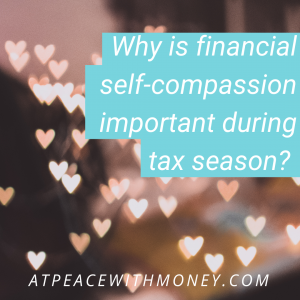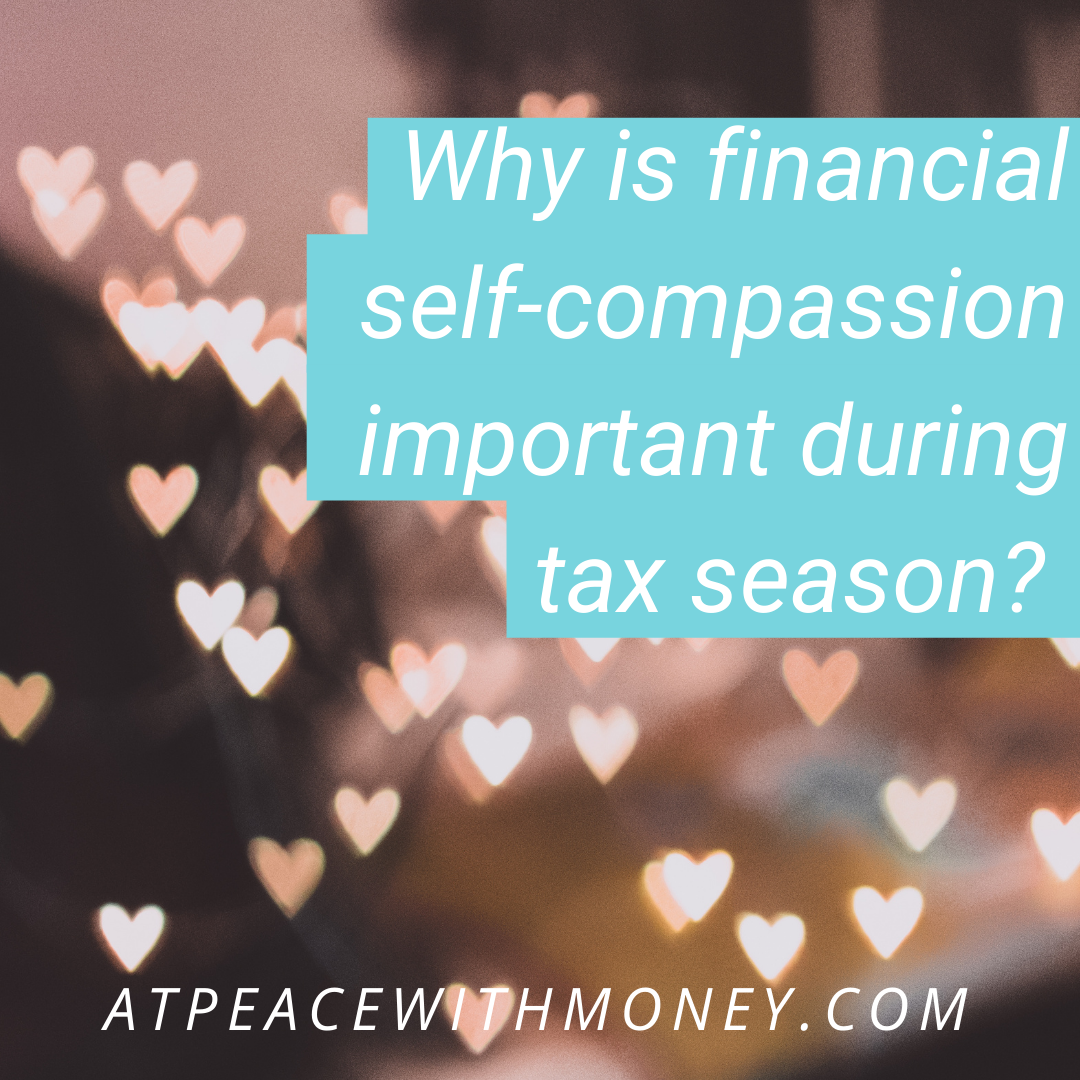Why Self-Compassion is Important During Tax Time

When it comes time to reflect on the financial choices you’ve made over the last year, shame and guilt, along with many other emotions, are likely to show their faces. Many people spend tax time berating themselves for mistakes or missed opportunities. I’d like to suggest a different approach. Instead of shaming and blaming ourselves, what if we tried empathy? Approaching tax time with financial self-compassion is important. It has positive impacts on our mental wellbeing, our productivity, and our bottom lines.
Stop the Blame Game
During tax time, we review the last tax year and every financial decision we made – or didn’t make – along with that. Since 2020 was an exceptionally challenging year, reviewing it will likely be challenging too. You may have faced some tough decisions last year. Perhaps you had to pull money out of your IRA, or you took on some consumer debt to pay bills. Whatever your situation is, and however it gets reflected on your 2020 tax return, stop the blame. Blaming and shaming yourself for whatever state your finances might be in won’t change your circumstances. Actually, it may get in the way of moving forward on your financial growth.

Financial Self-Compassion Clarifies Solutions
Self-compassion just might be integral to your financial success. Studies show that encouraging empathy and compassion can open us to adopt a growth mindset, where we are open to learning from our mistakes and trying new things. A growth mindset makes it possible for us to think clearly about the problems we face, and find new innovative solutions.
What opportunities might financial self-compassion open for us during tax time? For starters, instead of blaming and punishing ourselves for our financial missteps by going it alone this tax time, financial self-compassion might inspire us to open up to a money buddy about our tax concerns. We might get some useful ideas or feedback this way. We might also take a look at our spending plan, and decide that the money needed to hire an expert to help us with our taxes is well worth it this year. Without the shame and guilt, we are less likely to try to handle our money problems in isolation. We are open to new solutions and better ideas.
For more financial self care ideas, check out my free e-Book, 9 Secrets to Financial Self Care. These secrets run the gamut from the emotional (like forgiving yourself for past financial mistakes) to the practical (like setting aside regular “money time”).
Image by: Tim Marshall
This post was first published in March 2021
















 Whether you decide to create a spending plan and reign in your expenses, or feel satisfied with your lifestyle costs, you now have a complete picture of your financial needs. At this point, you can now set informed income goals that are designed to meet those needs in your personal life. Without this crucial information, your goals will just be shots in the dark, aimed at an amount of money that “sounds nice” but doesn’t tangibly satisfy a need.
Whether you decide to create a spending plan and reign in your expenses, or feel satisfied with your lifestyle costs, you now have a complete picture of your financial needs. At this point, you can now set informed income goals that are designed to meet those needs in your personal life. Without this crucial information, your goals will just be shots in the dark, aimed at an amount of money that “sounds nice” but doesn’t tangibly satisfy a need. With peace and self-compassion,
With peace and self-compassion,











 You may have some idea of whether you fit into either category. If you’re not sure what over-saving is, I recommend
You may have some idea of whether you fit into either category. If you’re not sure what over-saving is, I recommend